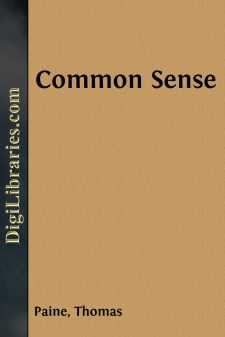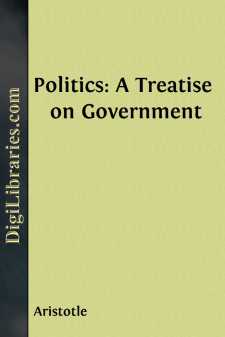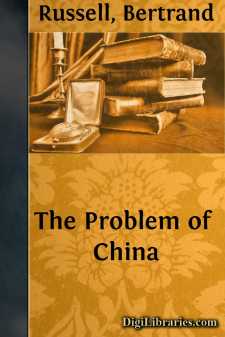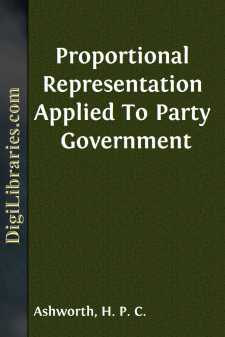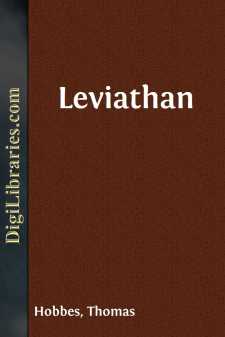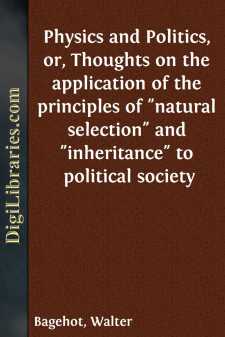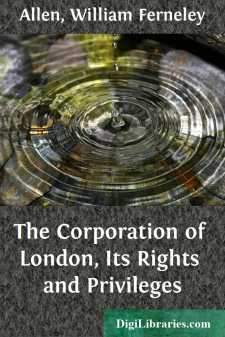Political Science
- Conspiracy & Scandal Investigations 1
- Constitutions 7
- Economic Conditions 10
- General
- Government 6
- History & Theory 132
- Peace 1
General Books
Sort by:
by:
Thomas Paine
SOME writers have so confounded society with government, as to leave little or no distinction between them; whereas they are not only different, but have different origins. Society is produced by our wants, and government by wickedness; the former promotes our happiness POSITIVELY by uniting our affections, the latter NEGATIVELY by restraining our vices. The one encourages intercourse, the other...
more...
by:
Bertrand Russell
Chapter I: Political Ideals In dark days, men need a clear faith and a well-grounded hope; and as the outcome of these, the calm courage which takes no account of hardships by the way. The times through which we are passing have afforded to many of us a confirmation of our faith. We see that the things we had thought evil are really evil, and we know more definitely than we ever did before the...
more...
by:
Aristotle
The Politics of Aristotle is the second part of a treatise of which the Ethics is the first part. It looks back to the Ethics as the Ethics looks forward to the Politics. For Aristotle did not separate, as we are inclined to do, the spheres of the statesman and the moralist. In the Ethics he has described the character necessary for the good life, but that life is for him essentially to be lived in...
more...
CHAPTER I — HOW MANY KINDS OF PRINCIPALITIES THERE ARE, AND BY WHAT MEANS THEY ARE ACQUIRED All states, all powers, that have held and hold rule over men have been and are either republics or principalities. Principalities are either hereditary, in which the family has been long established; or they are new. The new are either entirely new, as was Milan to Francesco Sforza, or they are, as it were,...
more...
by:
Bertrand Russell
CHAPTER I QUESTIONS A European lately arrived in China, if he is of a receptive and reflective disposition, finds himself confronted with a number of very puzzling questions, for many of which the problems of Western Europe will not have prepared him. Russian problems, it is true, have important affinities with those of China, but they have also important differences; moreover they are decidedly less...
more...
CHAPTER I. THE TRUE PRINCIPLES OF POLITICAL REPRESENTATION. Old establishments, like the British Constitution, said Edmund Burke, "are not often constructed after any theory; theories are rather drawn from them." In setting out on an endeavour to understand the principles underlying political representation, the saying expresses exactly the course which should be followed. The inquiry is the...
more...
INTRODUCTION The Life of a Day. ' am at my farm; and, since my last misfortunes, have not been in Florence twenty days. I spent September in snaring thrushes; but at the end of the month, even this rather tiresome sport failed me. I rise with the sun, and go into a wood of mine that is being cut, where I remain two hours inspecting the work of the previous day and conversing with the woodcutters,...
more...
by:
Thomas Hobbes
CHAPTER I. OF SENSE Concerning the Thoughts of man, I will consider them first Singly, and afterwards in Trayne, or dependance upon one another. Singly, they are every one a Representation or Apparence, of some quality, or other Accident of a body without us; which is commonly called an Object. Which Object worketh on the Eyes, Eares, and other parts of mans body; and by diversity of working, produceth...
more...
by:
Walter Bagehot
THE PRELIMINARY AGE. One peculiarity of this age is the sudden acquisition of much physical knowledge. There is scarcely a department of science or art which is the same, or at all the same, as it was fifty years ago. A new world of inventions—of railways and of telegraphs—has grown up around us which we cannot help seeing; a new world of ideas is in the air and affects us, though we do not see it....
more...
The first historical notice of the City of London occurs in that portion of the Annals of Tacitus which treats of the insurrection of Boadicea. At that time it was a place much frequented by merchants, attracted partly by the natural advantages of the site, and partly by the vicinity of the Roman camp at Islington. It is stated that 70,000 persons, of both sexes and of all ages, were massacred by that...
more...


